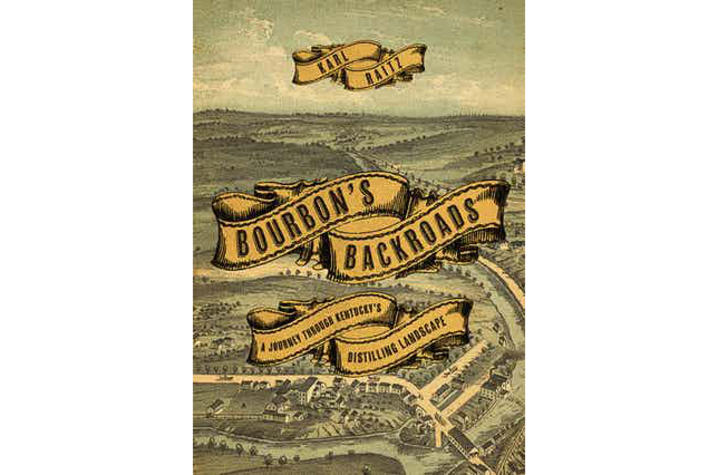New UPK Book Explores Kentucky’s Bourbon Backroads

LEXINGTON, Ky. (Dec. 4, 2019) — With more than 50 distilleries in the state, bourbon is as synonymous with Kentucky as horses and basketball. As one of the Commonwealth's signature industries, bourbon distilling has influenced the landscape and heritage of the region for more than two centuries.
University of Kentucky College of Arts and Sciences former faculty member and Provost’s Distinguished Service Professor Karl Raitz’s “Bourbon’s Backroads: A Journey Through Kentucky’s Distilling Landscape” blends several topics — tax revenue, railroads, the mechanics of brewing, geography, landscapes and architecture — into a primer and geographical guide with history of the development of Kentucky's distilling industry.
Nineteenth-century distilling changed from an artisanal craft practiced by farmers and millers to a large-scale mechanized industry that practiced increasingly refined production techniques. Distillers often operated at comparatively remote sites, the "backroads," to take advantage of water sources or transport access. Some distillers adopted mechanization and the steam engine, forgoing water power — a change that permitted geographical relocation of distilleries away from traditional sites along creeks or at large springs to urban or rural rail-side sites.
Raitz has received advance praise for the published work. "Raitz leaves no stone unturned as he explores the social, cultural, economic, and technological settings that enabled the bourbon industry to flourish in nineteenth-century Kentucky. Meticulously researched, authoritative, and highly readable, 'Bourbon's Backroads' does more than tell the story of whiskey production, however. It throws open a window on nineteenth-century America, offering insights into our past that only a gifted and seasoned writer like Raitz can impart,” said Geoffrey L. Buckley, coeditor of “The American Environment Revisited: Environmental Historical Geographies of the United States.”
Based on archival research that includes private paper collections, newspapers and period documents, this work published by University Press of Kentucky (UPK) places the distilling process in its environmental, geographical and historical context. “Bourbon's Backroads” reveals the places where bourbon's heritage was crafted — from old and new distilleries, storage warehouses, railroad yards and factories where copper fermenting vessels are made — and why the industry continues to thrive.
Karl Raitz, professor emeritus, was a faculty member in the Department of Geography at UK from 1970 to 2013. Raitz is also co-author of “Kentucky’s Frontier Highway: Historical Landscapes Along the Maysville Road” with Nancy O’Malley, “Rock Fences of the Bluegrass” alongside Carolyn Murray-Wooley, as well as co-editor of “Atlas of Kentucky” with Richard Ulack and Gyula Pauer.
As the state’s flagship, land-grant institution, the University of Kentucky exists to advance the Commonwealth. We do that by preparing the next generation of leaders — placing students at the heart of everything we do — and transforming the lives of Kentuckians through education, research and creative work, service and health care. We pride ourselves on being a catalyst for breakthroughs and a force for healing, a place where ingenuity unfolds. It's all made possible by our people — visionaries, disruptors and pioneers — who make up 200 academic programs, a $476.5 million research and development enterprise and a world-class medical center, all on one campus.




